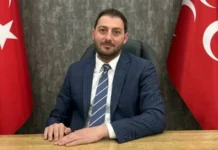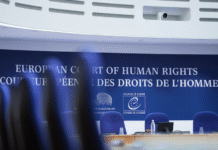Turkish police have detained 29 people over their alleged links to the faith-based Gülen movement, the state-owned Turkish Radio and Television Corporation (TRT) reported on Tuesday.
Detention warrants were issued for a total of 41 people across 19 provinces by Ankara prosecutors as part of an investigation into an alleged network affiliated with the movement.
The detainees include suspects who were involved in the movement’s alleged infiltration of the police as well as people who were determined to have used the ByLock messaging application. Also detained were individuals who are civil servants currently working at various institutions.
ByLock, once widely available online, has been considered a secret tool of communication among supporters of the Gülen movement, despite the lack of any evidence that ByLock messages were related to an abortive putsch in 2016. The app was available on Apple’s App Store and Google Play.
The detentions came despite a landmark European Court of Human Rights (ECtHR) judgment delivered last year which made clear that the use of the ByLock messaging app does not constitute a criminal offense.
Turkish President Recep Tayyip Erdoğan has been targeting followers of the Gülen movement, inspired by Muslim cleric Fethullah Gülen, since the corruption investigations of 2013, which implicated then-prime minister Erdoğan, his family members and his inner circle.
Dismissing the investigations as a Gülenist coup and conspiracy against his government, Erdoğan designated the movement as a terrorist organization and began targeting its members. He intensified the crackdown on the movement following an abortive putsch in 2016, which he accused Gülen of masterminding. Gülen and the movement strongly deny involvement in the coup attempt or any terrorist activity.
In addition to the thousands who were jailed, scores of other Gülen movement followers had to flee Turkey to avoid the government crackdown.
Turkish authorities routinely rely on witness statements as evidence to identify and prosecute members of the group.
The defendants in the trials against the movement are often encouraged to benefit from the country’s repentance laws allowing for reduced penalties in exchange for denouncing other members of the group.
In recent years there have also been many reports about the alleged use of torture and ill-treatment in custody to coerce detainees into becoming informants and incriminating others.















